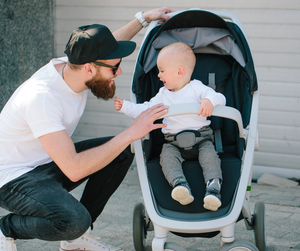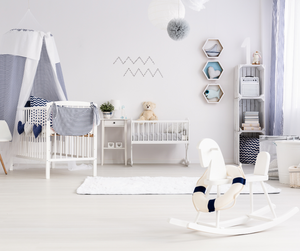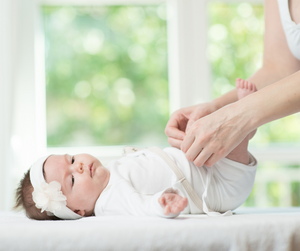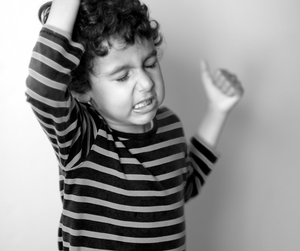Can Baby Sleep With a Pacifier? Is it advisable?
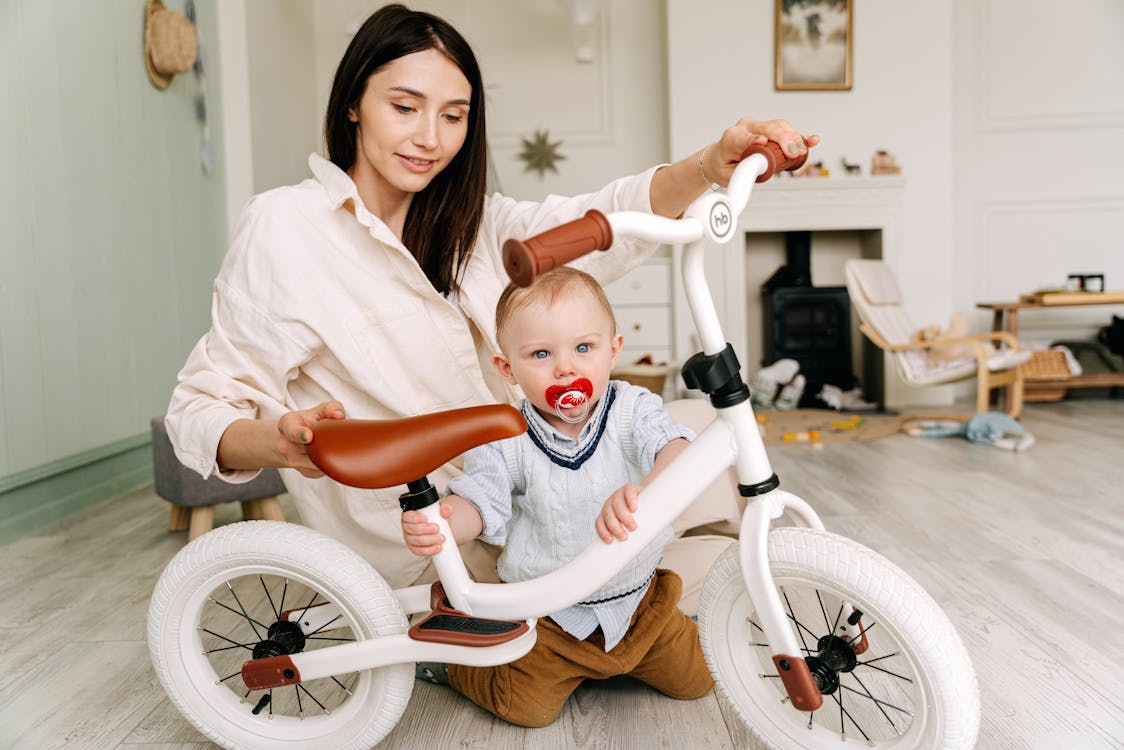
As a mother of 7 and a midwife who has worked for more than twenty years with mothers and babies, I can tell you that I speak with a large number of parents every year. Whether you have a newborn, you may be wondering can baby sleep with a pacifier or not. You may also be pondering 'how to get the baby asleep without a pacifier' if you have a toddler or an older kid.
In this article, you'll learn all you need to know about newborns sleeping with pacifiers.
So, can baby sleep with a pacifier in his mouth? Is it safe to use?
This is one of the most often asked questions by new parents of their newborn babies. How safe is it to let your newborn sleep with a pacifier in his or her mouth?
Yes, using a pacifier to sleep with a baby is very safe and acceptable.
Pacifiers are pretty safe for use during sleep, and they may even lower the incidence of SIDS. For additional information, please review all of our safe sleep recommendations here[1]. The Consumer Product Safety Commission (CPSC) has tight requirements for pacifier manufacture.
Can baby sleep with a pacifier all night?
Yes, a baby may sleep with a pacifier during the night as long as there are no clips or strings that might constitute a problem for him or her. It is totally safe since it is inside one of the standards established by the Consumer Product Safety Commission. When your child is asleep, you are not required to remove the pacifier.
The Consumer Product Safety Commission's "structural integrity" tests are intended to imitate actual usage and abuse by a baby.[2] There are physical and mechanical testing that is performed to verify that the pacifier will not break apart and provide a choking threat to the child. Additionally, pacifiers are constructed with a guard to prevent them from entering a baby's mouth and blocking his or her throat. It's also possible to get pacifiers that actively assist with a baby's natural breathing like these popular Chicco PhysioForma pacifiers.

Check Price
What is it about pacifiers that babies find appealing?
Babies like sucking on pacifiers because they have a strong sucking reflex that helps calm them down and relax. This may be particularly useful during the witching hour when newborns are cranky in the evening and during the day.
Pacifiers may also be used to help soothe newborns who are suffering from colic. In addition, pacifiers may assist newborns in falling asleep and remaining asleep, which is a significant advantage for the whole family!
Cholecystokinin (CCK) is also produced into the body when an infant suckles on a pacifier, which has been correlated to a decreased risk of SIDS. The CCK hormone aids in the digestive process. Some infants seem to benefit from it in terms of tummy comfort.
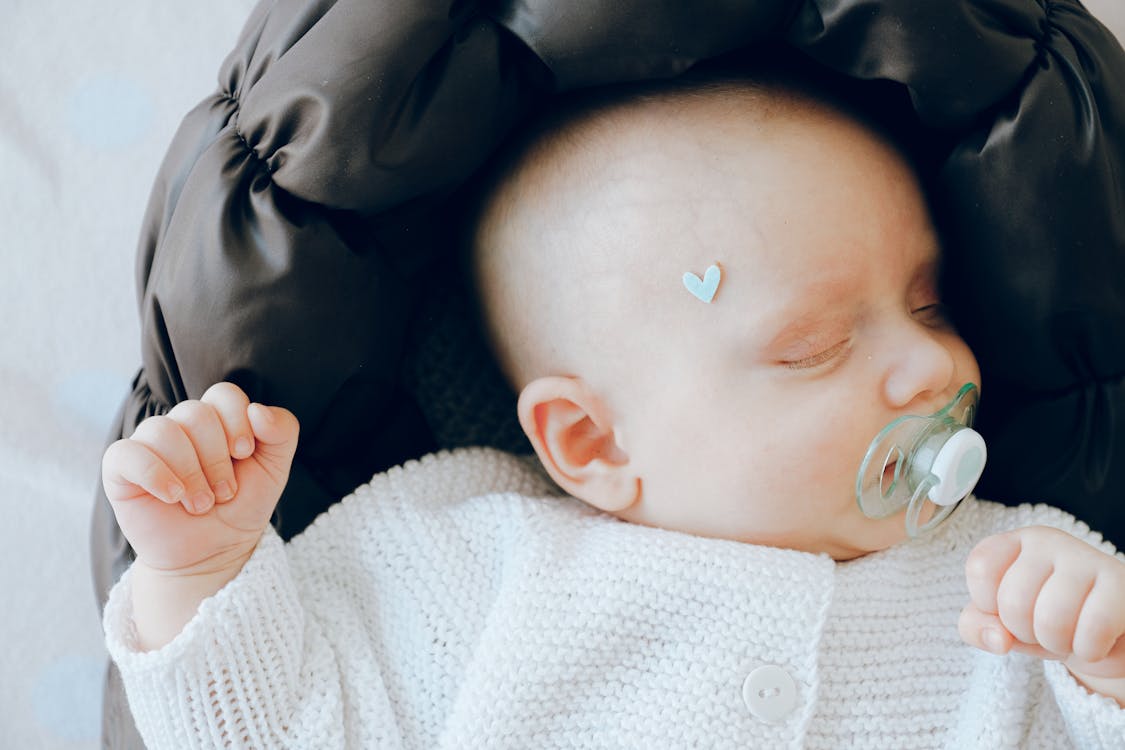
Is Using Pacifiers While Breastfeeding Harmful?
It is not true that pacifiers are harmful to nursing; nonetheless, it is very crucial to wait until breastfeeding has been properly established, which is normally about 2-4 weeks old for newborns who do not have latch difficulty. If your infant is having a latching problem, be careful to wait until you have resolved the problem.
The CCK hormone, as was previously discussed, also boosts the sense of short-term fullness, which helps the body digest meals more efficiently. Consequently, if breastfeeding has not yet been established, it might have a significant and unfavorable influence on your breast milk production.
A pacifier may be used immediately for formula-fed newborns or breast-milk-only babies fed exclusively via a feeding tube.
After all of this analysis, we've come to the judgment that your infant is able to utilize a pacifier.
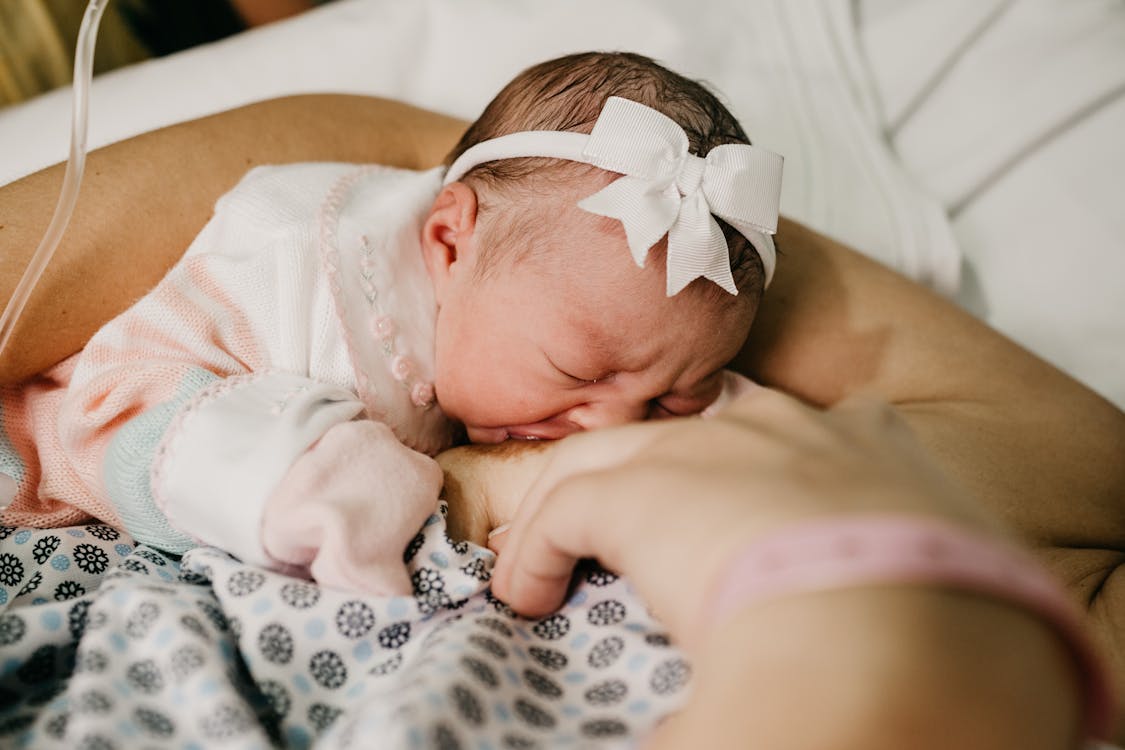
What happens if you give a baby a pacifier too early?
If you introduce a pacifier too soon, it may interfere with your baby's ability to latch on and nurse successfully. Nursing complications such as painful nipples, engorgement, clogged milk ducts, and even mastitis may result as a result of this condition. The American Academy of Pediatrics advises postponing until the child is 3 to 4 weeks old before introducing a pacifier.
Does this imply that all newborns should be provided with a pacifier?
A pacifier is not required for every infant, just because they can sleep with one does not mean they should.
Should Babies Be Allowed to Sleep With Their Pacifiers?
Again, using a pacifier while sleeping may lessen the chance of SIDS, so you may want to advocate the use of a pacifier until your child is at least 6 months old, only for that reason. In addition, pacifiers have been shown to be beneficial for newborns suffering from reflux.
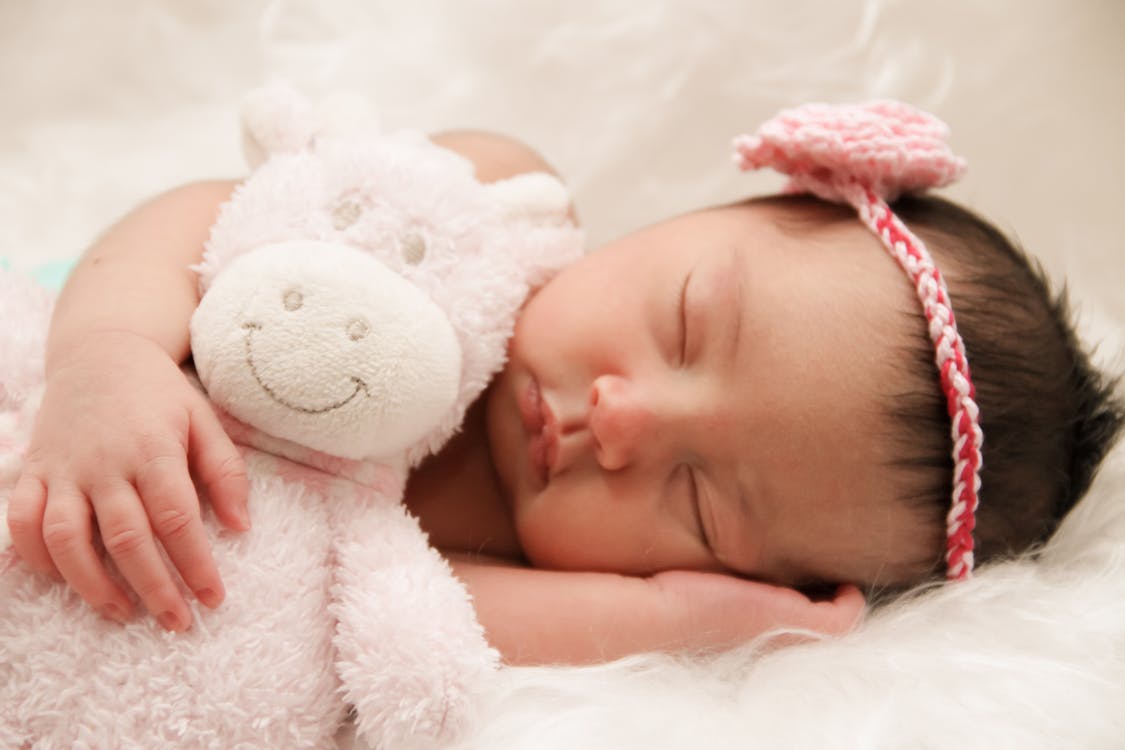
The problem is that although pacifiers are a godsend to some families because they help a newborn sleep, they may also lead a baby to wake up several times during the night to be placed back in. Many parents find this to be quite stressful!
Check out this related article here about getting newborns to sleep [3]
In a perfect world, if your baby has a powerful urge to suck and appreciates having a pacifier, you would teach them how to discover and change it on their own. However, in the real world, this is not always possible. Obviously, babies are unable to accomplish this until they are able to use their hands properly.
Babies aren't often able to move the pacifier on their own until they are between 5-8 months old, according to my own experience with them. Some youngsters never appear to be able to complete the task, despite the fact that they are totally competent. I've spoken with some parents of toddlers who wake up in the middle of the night and wait for their parents to replace their pacifier!
In the early days of a child's existence, it's common to "do what you have to do" to accomplish the first 3-4 months of the child's life. Typically, when your infant begins the 4-month sleep regression, this is the period when you should consider discontinuing usage of the pacifier.
Can baby sleep with pacifier clip?
Pacifier clips made of wood or silicone beads are often marketed as "unique, contemporary, and safe" for newborns since they are made of materials that are "non-toxic, Phthalate-free, and BPA-free." These beads, on the other hand, are a major choking danger for newborns.
Can a 4-day old baby sleep with a pacifier?
Yes, you may give your baby a pacifier at sleep without worrying about harming him or her. Remember to take these precautions to keep yourself and others as safe as possible: Attaching a thread to a pacifier poses a danger of strangulation to the child, thus avoid doing so. While your infant is starting to nurse, it is important that you do not offer him or her a pacifier at night, as discussed previously.
How many hours should baby use pacifier?
You should restrict the amount of time your youngster may use a pacifier. It is exclusively for sleep time and comfort until the baby is around 12 months old and then aim to discontinue use. Never use punishment or shame to coerce your kid into giving up the usage of a pacifier in the first place.
Which pacifier shape is best?
Research shows that orthodontic pacifiers are the preferable form once your baby's teeth begin to develop, which normally occurs around six months of age. The Baby's gum ridge and dental arch will be the least affected by the orthodontic shape since it is the least likely to change. I honestly recommend the PhysioForma from Chicco.
Check out the unique features of the PhysioForma from Chicco.
Do pacifier sizes matter?
The most crucial factor to consider is whether or not your infant is able to correctly retain the pacifier in his or her mouth while sleeping. There is a noticeable variation in the size of the shield and the teat of the pacifiers for newborns, 0-6 months, and 6+ months babies. The form of the pacifier is imprinted on the cheeks of your infant.
Is cutting the tip of the pacifier safe?
It is important to note that cutting off the tip of a pacifier may be harmful since a little piece might fall off and pose a choking hazard for the child. To avoid this, be sure to only give your kid the pacifier while you are there and to check it on a regular basis to ensure that it is still in good working order.
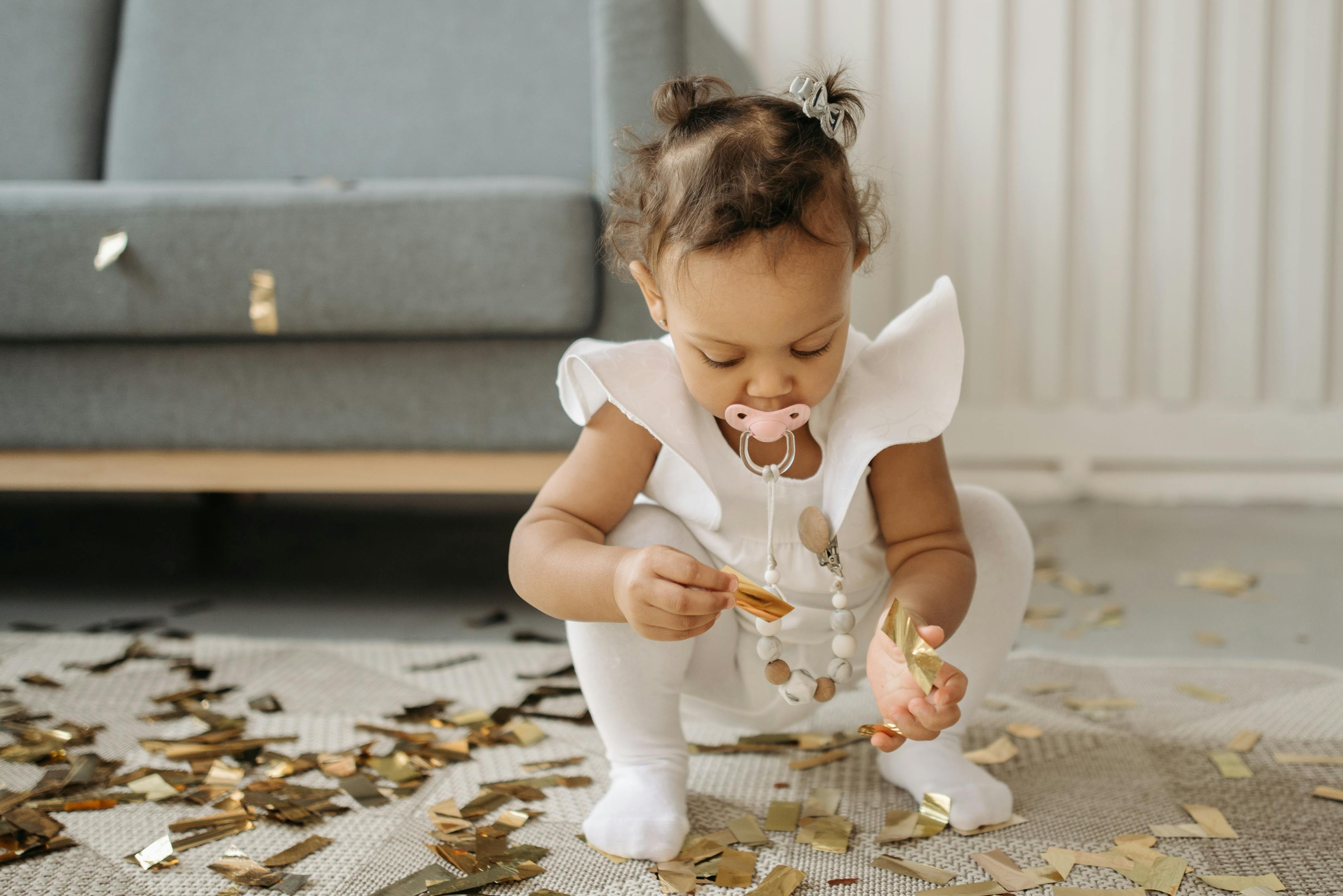
Does pacifier cause gas?
During activities like nursing, sucking on a pacifier, or crying, babies tend to take in a lot of excess air via their mouths. Based on suggestions from the National Institute of Diabetes and Digestive and Kidney Diseases, they might pass gas anywhere between 13 and 21 times every day as a consequence of this condition.
How to Get Your Child to Stop Using a Pacifier
Unfortunately, once you start using a pacifier, it is not usually simple to discontinue using one. Babies grow reliant on it, with some being more reliant than others. When working with newborns, I've come across those that need the pacifier 100 percent of the time when they're sleeping. Some infants exclusively use it for sleep and never use it for anything else.
Others, on the other hand, need it virtually the whole day. Finally, some infants only need it in the early hours of the morning, spit it out in their sleep, and then no longer require it at any point throughout the night. Every infant is unique in their own way.
Does poking a hole in a pacifier work?
Puncturing a hole in the rubber tip of the pacifier allows the pacifier to loose its air, which makes it substantially less enjoyable to suck on. Because your child is unlikely to understand why their favorite self-soothing approach is no longer producing the same results, the hope is that they will eventually lose interest in doing it.
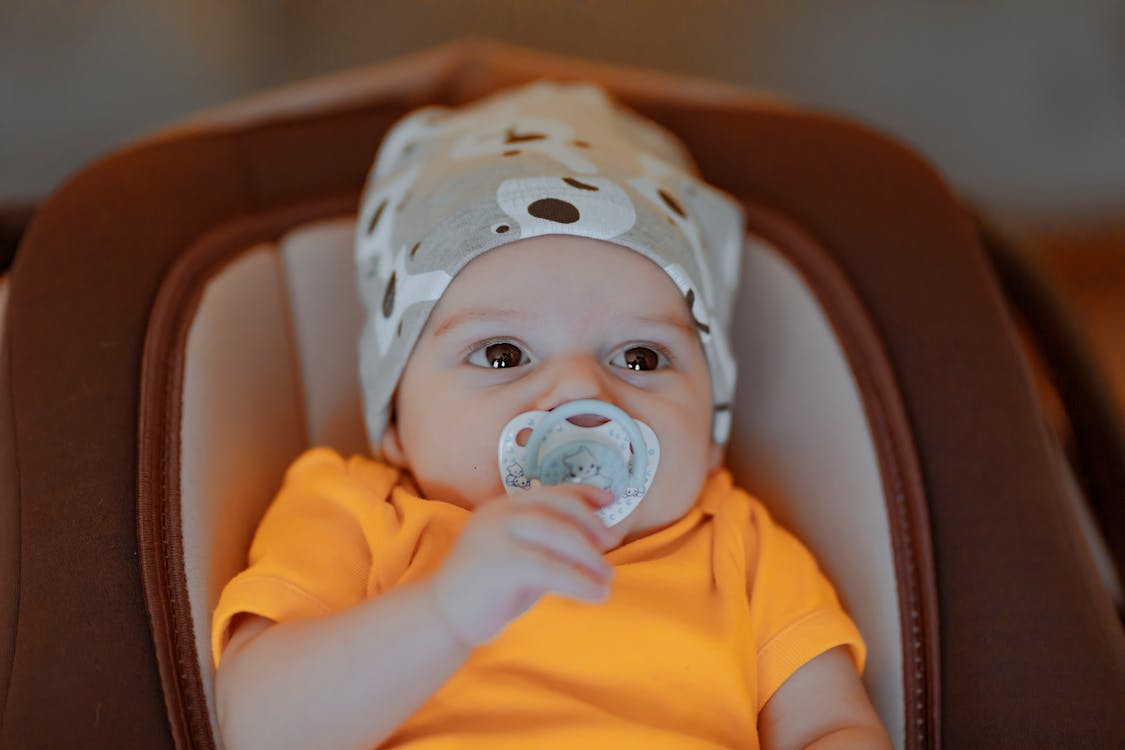
How long does it take for baby to forget about pacifier?
The majority of youngsters are emotionally ready to wean themselves off of their pacifiers by the age of 2-4 years. As a result, you may want to start putting the idea in your child's head that the day will come when they will have to say goodbye. Sometimes you may say something along the lines of, "When kids turn three, the pacifier fairy takes away their old pacifiers and gives them back with new toys!"
I hope that this article has alleviated any of your concerns about using a pacifier to sleep at night!
Related Articles
1.) How to spot diabetes symptoms in your child
2.) Dealing with a colicky baby
3.) Getting through new born sleep patterns
4.) What you should know about the child vaccine schedule
5.) What exactly is attachment parenting?
6.) To breastfeed or not?
7.) Is it time for a new way of potty training?
8.) White noise players- 3 mistakes parents make
References
1.) Pacifiers Business Guidance | CPSC.gov

